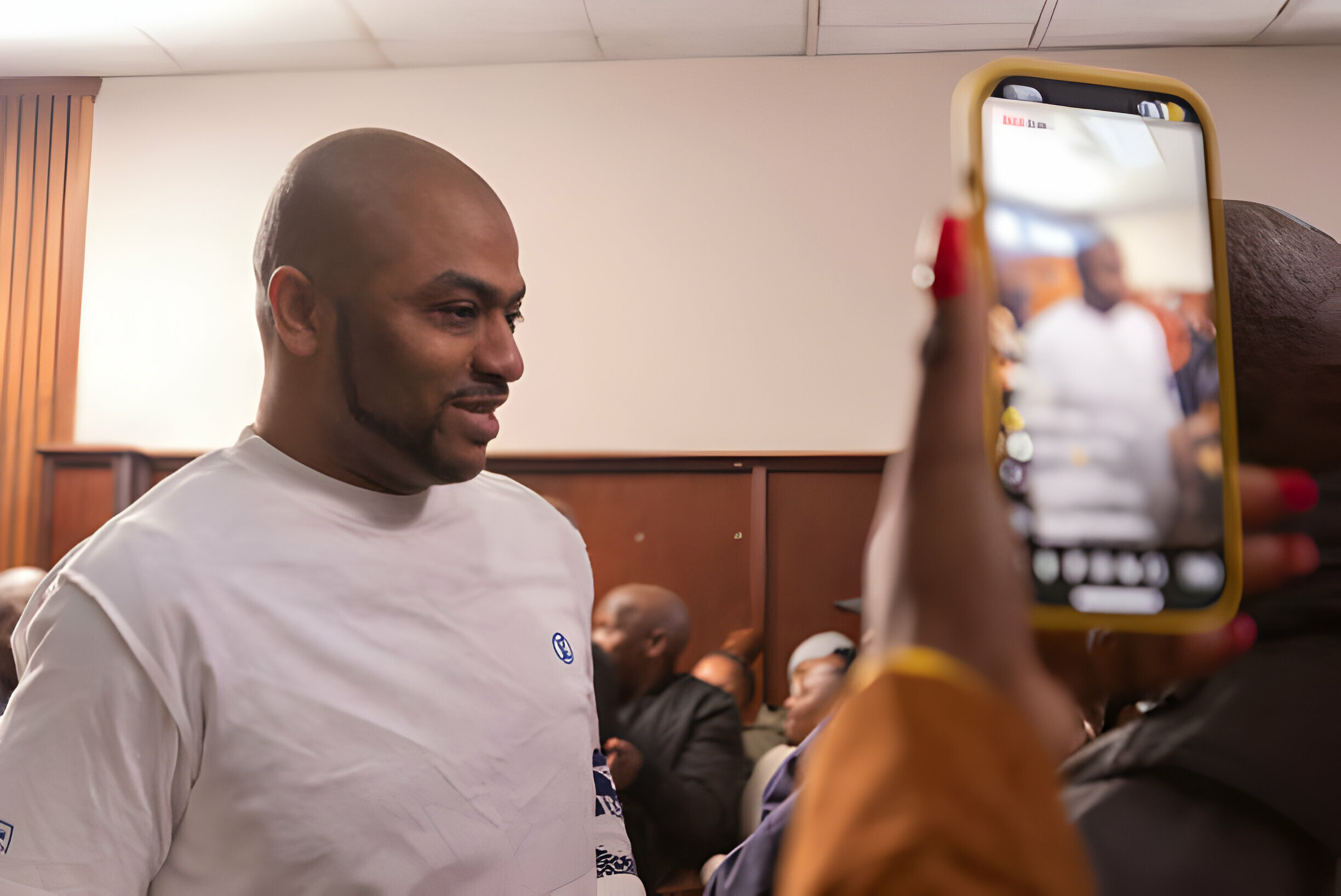Thabo Bester, known as the “Facebook rapist,” along with Nandipha Magudumana, who is currently awaiting trial, were unsuccessful in their last-minute legal attempt to halt the airing of the Showmax documentary titled “Tracking Thabo Bester.”
Judge Stuart Wilson of the Johannesburg High Court, on Friday, decided against their plea, stating that Bester and Magudumana did not convincingly argue that the documentary would jeopardize their right to a fair trial.
Consequently, the documentary is scheduled to premiere on the streaming platform starting 15 March, with the first two episodes becoming available.
Originally slated for a 2 am release, Showmax postponed the airing to 4 pm to allow for court deliberations on the matter. Bester and Magudumana had filed urgent applications with the court, claiming that their rights, including the right to a fair trial, were in jeopardy.
In her legal statement, Magudumana expressed:
“I am not against the respondents broadcasting the documentary. In fact, I am very much interested in it and will watch it when released and/or broadcasted. However, I am against the documentary being broadcasted before I have seen it, more specifically before the end of my trial as I believe it will have an impact on my trial and the subsequent result.”
She requested that Showmax provide her with a copy of the documentary, allowing her and her legal team 30 days to review it and take any necessary legal action.
Bester sought a similar restriction, demanding a chance to comment on the personal information and details concerning him, his life, relationships, and associated third parties before the documentary’s broadcast.
He stated in his affidavit:
“It is unfair that I should have to fight a trial in court and a public trial which influences my treatment and attitudes toward me, before I have even had an opportunity to respond. This is especially true because the sources of the documentary will form the state’s evidence in the trial yet to be determined.”
Multichoice’s General Counsel, Steven Budlender, countered by stating that the documentary does not reveal any new facts. Instead, it reorganizes existing public information into a four-part series, based on well-known events.
Despite Bester and Magudumana’s concerns, which included the interview of Magudumana’s brother, Nkosinathi Sekeleni, a witness in the upcoming trial, Judge Wilson delivered a spoken ruling shortly before the scheduled broadcast, affirming that the documentary would not compromise the fairness of their trials.
He rationalized that any discrepancies in Sekeleni’s accounts between the documentary and his court testimony would merely undermine his credibility as a witness, rather than hinder justice.
Drawing on the Supreme Court of Appeal’s precedent in a similar case, Judge Wilson emphasized that for a pre-publication interdict to be granted, the applicants must prove a substantial and real threat to the justice system, which Bester and Magudumana failed to do.
He dismissed their applications, ruling that each party should bear its own legal costs. He acknowledged that despite their current incarceration and the errors in their legal understanding, their access to the courts remains a fundamental right, irrespective of past actions or character judgments.
This ruling underscores the judiciary’s stance on the balance between fair trial rights and freedom of expression, particularly in the context of public interest documentation.











